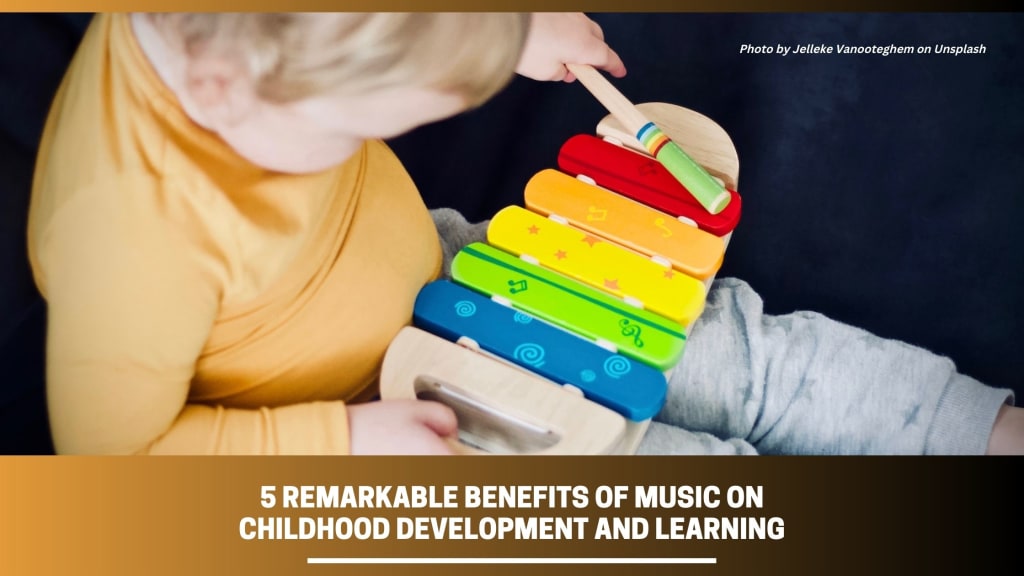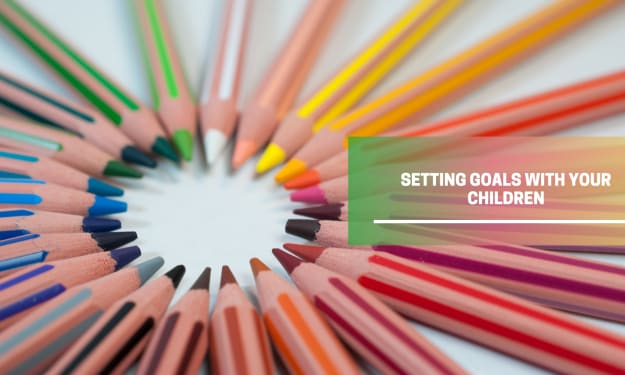5 Remarkable Benefits of Music on Childhood Development and Learning
Here are five remarkable benefits of music on childhood development and learning, ranging from accelerating brain development to improving hand-to-eye coordination to boosting confidence.

While STEM subjects (science, technology, engineering, and math) are important in today's world, the arts offer unique benefits to a child's development with the help of educational videos for preschool. Because of the benefits of music for children, activities such as songwriting, singing, learning an instrument, and stage performance can all play an important role in your child's development.
Here are five remarkable benefits of music on childhood development and learning, ranging from accelerating brain development to improving hand-to-eye coordination to boosting confidence.
1. Music Accelerates Brain Development
Children who are exposed to music during their early years have a faster brain development and memory capacity. According to research, children who were involved in music as children outperformed those who were not. This is due to the fact that music lessons activate the same area of the brain that governs reading, math, and emotional development, which is why the best nursery in Abu Dhabi incorporates music into their curriculum.
2. Music Improves Other Skills
Music, more than any other subject, improves a child's auditory sense, but it also helps to improve other important skills. When children learn to play an instrument, for example, they are also developing hand-to-eye coordination, ear-to-hand coordination, and other fine motor skills.
Furthermore, music necessitates pattern recognition, which is a fundamental math skill. Furthermore, music stimulates the same part of the brain that is involved in spatial skills, which is required for comprehension of higher-level math equations.
Music study involves the same areas of the brain as language learning, according to research. Whether your child is learning to play an instrument, singing, or memorising melodies, the practise strengthens the network of circuits required for sound processing and comprehension. Young children who are proficient in verbal communication have an advantage in educational and social settings, which grows over time.
3. Music Enhances Social Skills
When your children begin to learn to sing or play an instrument, they are also developing social skills. These abilities range from understanding how to work in a team to appreciating accomplishment. Given that music is meant to be performed, preparing a child to perform in front of an audience is an excellent way to prepare them for real-world situations.
Children can recognise that they have a skill that (hopefully) others enjoy through music learning. This realisation frequently provides them with enough self-belief to boost their confidence. Children can gain confidence in their abilities as they progress in their practise.
As children grow older and continue to study music, they can join a small ensemble, a school orchestra, or a band with their friends. Being a part of these groups fosters teamwork skills as well as a love of working with others to achieve a common goal.
4. Music Teaches Discipline
All instruments necessitate intense concentration as well as physical and mental recall. Children learn that mastery comes from regular practise by continuing to develop their skills through preschool learning videos, as repetition strengthens retention. Every person must learn the value of hard work at some point in their lives, and music is an excellent way for your child to do so on their own. Regular music practise is a dependable way to teach your child that hard work yields results. It's also a lot of fun!
5. Music Encourages Creativity
For many people, music is their primary means of communication. By giving your children the gift of music, you are giving them a way to express themselves, regardless of their age. Young children swing, bounce, or move their hands and legs in response to music. Three- to four-year-olds frequently compose their own songs, whereas older children use music to express their emotions. This encourages creativity.
Children who take music lessons are encouraged to listen to their inner creative souls, whether they are composing melodies or rehearsing concertos. Creativity is a quality that is highly valued later in life and is an essential characteristic of successful people.
These five reasons should be sufficient to persuade your children to participate in music-related activities.
About the Creator
Amit Kumar
Full-time thinker & part-time writer...
Enjoyed the story? Support the Creator.
Subscribe for free to receive all their stories in your feed. You could also pledge your support or give them a one-off tip, letting them know you appreciate their work.






Comments
There are no comments for this story
Be the first to respond and start the conversation.